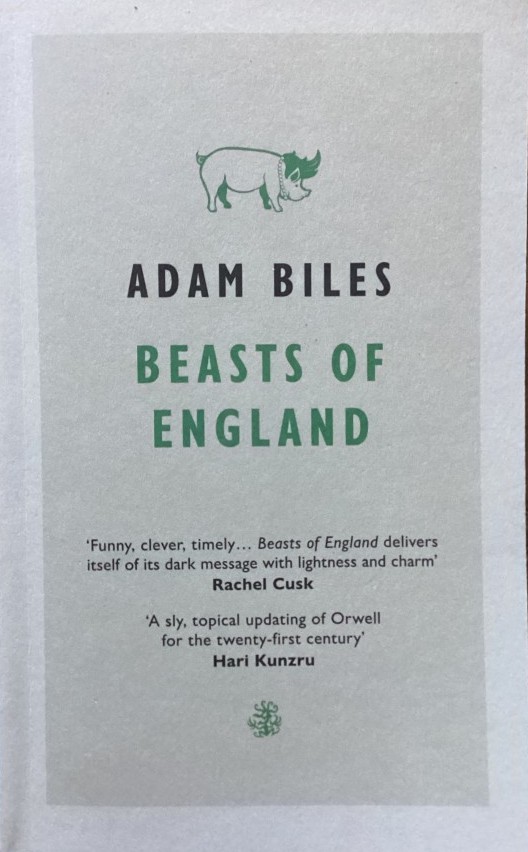Inspiring Older Readers
 posted on 19 Nov 2023
posted on 19 Nov 2023
Beasts of England by Adam Biles
Adam Biles is the Paris-based literary director of Shakespeare and Company and so it’s no surprise that he’s revisited a classic of 20th century literature – George Orwell’s Animal Farm – to be the inspiration for this novel. The title, of course, comes from the song Orwell has the animals share in the early days of their farmyard revolution – a sort of animal Internationale if you will.
Orwell’s political fable is a specific historical commentary on the path the Russian Revolution took and the subsequent emergence of Stalinism: but, more importantly I think, it is a universal assault on Totalitarianism as a political ideology. This latter aspect of Animal Farm is what lends itself to Biles’ project to take the Orwellian framework and apply it to Britain in the 21st century. Patrick McGuiness, reviewing the book for The Guardian, captures the most obvious appeal of the book when he concludes his review with this observation:
“Readers will enjoy spotting this or that “real-life” outrage in its animalised fictional rendering, such as the Jumbo-inspired two-minute “Huzzah” to thank the heroes of Manor Farm. No species comes out of this novel with its reputation radically reframed: pigs are still clever and at the trough, foxes are cunning and can’t be trusted, while sheep follow the crowd and pigeons shit everywhere. But as the Conservative government continues to wage its war on everything that makes us human, this fine and timely novel reminds us that we still have a great deal to learn from the animals.”
And this neatly sums up how you tend to read this book – instead of admiring story or character you are inevitably drawn into seeing the Animal Farm framework created by Orwell as if it were a sort of 'spot the character or event' challenge and I spent my time trying to ‘decipher’ or ‘match’ the happenings on the Farm with contemporary social and pollical events and individuals.
I’m not sure whether or not there have been previous explicit attempts to use Animal Farm as the template for an alternative novel but it is not, of course, the first to see the possibilities of the Orwellian farmyard as a metaphor for human political behaviour. Cartoonist, Steve Bell created the magnificent Maggie’s Farm in the 1980s for a long running Guardian strip which blended Orwell’s Animal Farm with Bob Dylan’s song, Maggie’s Farm to come up with sharp and precise skewering of the politics of that time.
For me Biles’ fable lacks the cutting edge of Bell’s work (or of Dylan's for that matter) – the book is maybe twice as long as the original with no noticeable pay-off for that. I was left thinking that this was a fundamentally unnecessary exercise in literary acquisition and couldn't help but think that just the ability to do something is not always a reason to do it.
The universal message of Orwell’s Animal Farm is exactly that: universal. If, in reading Animal Farm you’re not able to transfer the lessons from the book to your own time then Orwell’s tale simply becomes a redundant historical novel attacking a particular time in Russian history. The fact that it remains immediate and popular is precisely because we can do what Biles does but we do it for ourselves – and we’re constantly doing so. I didn’t need someone else to do it for me and take me through that in a ‘spot-the-political-reference’ exercise.
Read the original.
Terry Potter
November 2023